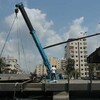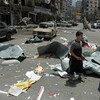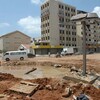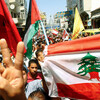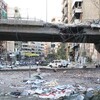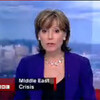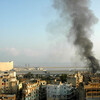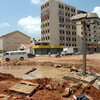
World Food Programme sends emergency assessment team to Lebanon
18 July 2006
With tens of thousands of people fleeing the escalating conflict in Lebanon, WFP has sent an emergency team to conduct a preliminary needs assessment of the logistics infrastructure and particularly the feasibility of reaching the population in the affected areas. The agency has already drafted contingency plans to draw on existing food stocks within the area as well as its emergency response depot in Brindisi, southern Italy. Tens of thousands of displaced persons, including women and children, have abandoned their homes and taken shelter in temporary accommodation in schools and social institutions. Cut-off from the rest of their families, they may require food aid to survive the crisis. Read more about World Food Programme sends emergency assessment team to Lebanon

